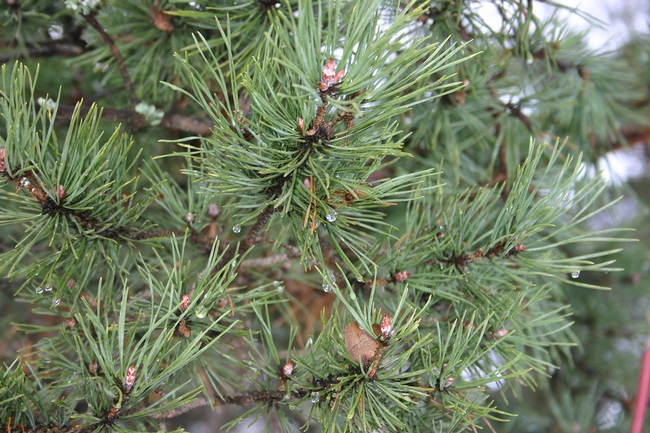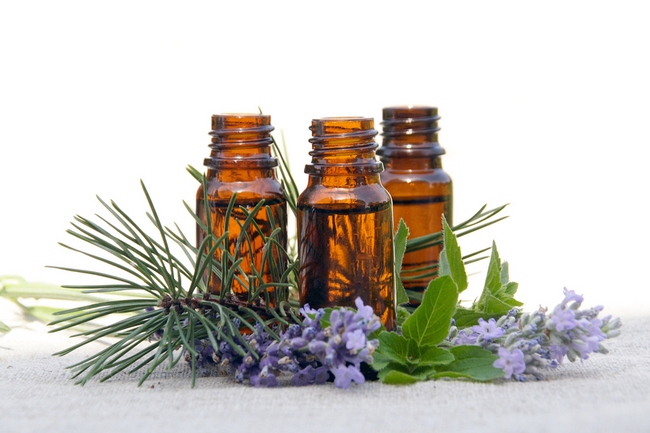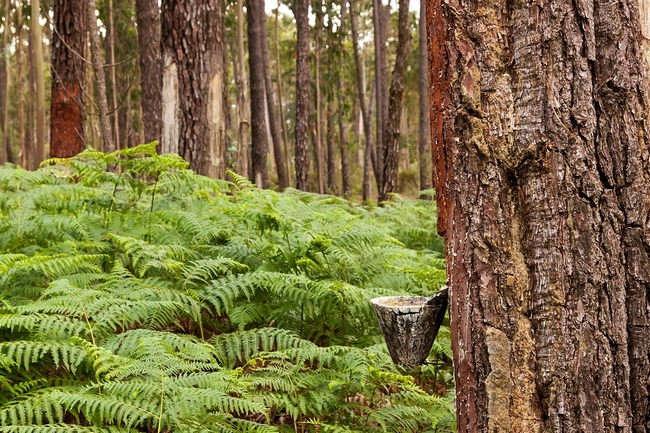- Make It Yourself Lavender Heart-Shaped Bath Bombs!
- 20 Things You Never Knew About “Down There”
- 12 Best Foods For Those Suffering From Arthritis Pain
- 12 Personal Hygiene Mistakes Almost Everyone Makes (Mom Never Told You About #4!)
- 15 Medicinal Plants And Herbs From The Cherokee People
- 12 Mind-Blowing Benefits Of Drinking Coconut Water During Pregnancy
- 12 Outstanding Winter Foods That Won’t Fatten You Up Like A Christmas Turkey
7 Health Benefits from a Little Known Pine Tree

Photo credit: bigstock
If you think you’ve tried everything on the market to relives your menopause symptoms, inflammation, or low energy levels, then this might just be what you are looking for. An extract from the French Maritime pine tree shows great promise in helping relieve many of the symptoms of menopause, and a great deal of other health issues, such as asthma and impotence.
The extract from these pine trees is called pycnogenol, and it contains several helpful compounds such as proanthocyanidins and phenolic acid. It also reduces collagen degeneration and oxidative stress, while addressing a wide variety of health problems.
Check out the top 7 health benefits we can reap from one little tree.
1. Arthritis
This common condition affects the joints and bones of the body. There are several different forms of arthritis, with rheumatoid and osteoarthritis the most common types. Arthritis is generally treated by sing anti-inflammatory drugs. Doing weight bearing exercises and losing weight if you are overweight can help reduce the load on the joints but taking pycnogenol can also reduce inflammation levels. In a study published in 2008, a study using 100 patients showed that this extract improved symptoms for those suffering from mild to moderate osteoarthritis, so much so that these subjects were able to reduce their intake of anti-inflammatory drugs. Results of this study were published in the August issue of Phytotherapy Research.
2. Fights Cardiovascular Disease
In recent studies, subjects taking pycnogenol and centella asiatica, otherwise known as gotu kola, it was noted that it helped to reduce arterial lesions as well as the progression of plaque. This pine bark extract was also noted in another study, published in the journal of Clinical and Applied Thrombosis and Hemostasis, which helped to improve overall blood circulation as well as minimize edema.
Continue to Page 2

Photo credit: bigstock
3. Reduces Menopause Symptoms
A 12 week study that gave women supplements of pycnogenol showed that the women had significant reduction in their premenopausal and menopausal symptoms including reducing fatigue, hot flashes, insomnia, and night sweats. This study involved more than 170 premenopausal women and was published in The Journal of Reproductive Medicine. Researchers concluded that taking a relatively low daily dose of this pine tree extract give women significant relief from the symptoms of menopause.
4. Lowers Inflammation
Pycnogenol has showed a remarkable ability to lower inflammation levels. A recent study showed that taken 100mg of this pine bark extract for 3 months helped to lower the amount of anti-inflammatory drugs subjects had been taking and edema in the feet (a type of swelling) decreased an amazing 79 percent compared to the control group.
It also seems that pycnogenol can help to reduce the symptoms of inflammatory bowel disease.
5. Helps with Impotence
This pine bark extract encourages the production of nitric oxide, as well as improved dilation of blood vessels, and increased oxygen levels and blood flow. There have been several studies that show that pycnogenol significantly improved symptoms of those suffering from ED. ( erectile dysfunction) In one study, taking a supplement of pycnogenol ( 60mg), aspartic acid ( 552mg), and L-arginine (690mg) for the length of an 8 week study showed improvement in the hardness of erections as well as improved sexual satisfaction.
Continue to Page 3

Photo credit: bigstock
6. Less Asthma Symptoms
A study involving test subjects between the ages of 6 and 18, who took pycnogenol for a three month period had much lower rates of asthma symptoms when compared to the placebo group. This study was done at Loma Linda University in California.
7. Diabetes Support
In a study involving 77 subjects with type 2 diabetes, this extract was shown to be effective in lowering glucose levels. This extract also improved diabetic micro-angiopathy and retinopathy. Retinopathy is a type of vision loss, especially for diabetic patients, caused by hemorrhages and vascular lesions. Treating these problems with pine bark extract helped to strengthen capillaries and stop blood leakage into the retina.
This extract is commonly taken via capsules or tablets however guidance for dosing levels is currently lacking. Many companies recommend doses of up to 360mg per day, but it should be noted that many products have not been standardized. Your pharmacist or doctor might be helpful in determining the appropriate dose for your condition.
Sources for this article include:
“Effect of Low-dose French Maritime Pine Bark Extract on Climacteric Syndrome in 170 Perimenopausal Women – A Randomized, Double-blind, Placebo-controlled Trial” T. Kohama, M. Negami, The Journal of Reproductive Medicine, 2013, Vol. 58, pp. 39-46. Retrieved on July 25, 2014 from: Europepmc.org
“Therapuetic efficacy of pycnogenol in experimental inflammatory bowel diseases” Miyako Mochizuki and Noboru Hasegawa, Phytotherapy Research, 2005. Retrieved on July 25, 2014 from:Onlinelibrary.wiley.com
“Pycnogenol and Centella Asiatica for saymptomatic atherosclerosis progression” Belcaro G, Dugall M, Hosoi M, Ippolito E, Cesarone M, Luzzi R, Cornelli U, Ledda A, International Angiology: a Journal of the International Union of Angiology, 2014, Vol. 33, pp. 20-26. Retrieved on July 25, 2014 from: Europepmc.org
“Treatment of osteoarthritis with Pycnogenol. The SVOS (San Valentino osteo-arthrosis study). Evaluation of signs, symptoms, physical performance and vascular aspects” G. Belcaro, M. R. Cesarone, S. Errichi, C. Zulli, B. M. Errichi, G. Vinciguerra, A. Ledda, A. Di Renzo, S. Stuard, M. Dugall, L. Pellegrini, S. Errichi, G. Gizzi, E. Ippolito, A. Ricci, M. Cacchio, G. Cipollone, I. Ruffini, F. Fano, M. Hosoi and P. Rohdewald. Phytotherapy Research, 2008. Retrieved on July 25, 2014 from: Onlinelibrary.wiley.com
“PycnogenolR as an Adjunct in the Management of Childhood Asthma” Benjamin H.S. Lau, M.D., Ph.D., Sharon K. Riesen, M.D., Kim P. Truong, D.O., Esther W. Lau, M.S., R.D., Peter Rohdewald, Ph.D. and Ray A. Barreta, B.S., R.N., Journal of Asthma, 2004, Vol. 41, pp. 825-832. Retrieved on July 25, 2014, from: Informahealthcare.com
































